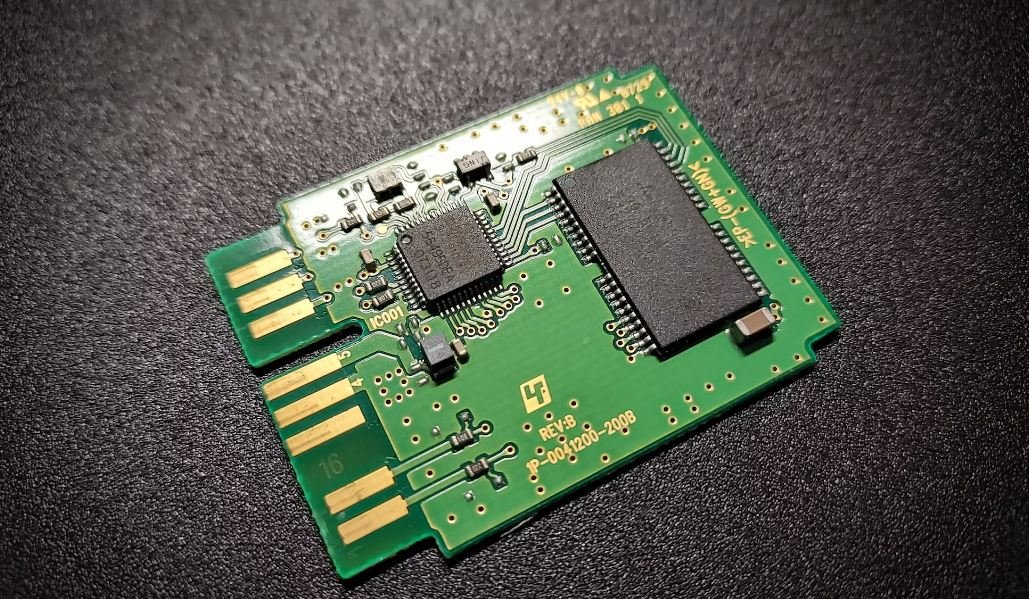AI Project Ideas for Final Year Students
Artificial Intelligence (AI) is an exciting field that has seen rapid advancements in recent years. For final year students studying AI, choosing a project can be both challenging and exciting. In this article, we will explore some unique AI project ideas that can help students showcase their skills and knowledge in this cutting-edge technology.
Key Takeaways
- AI project ideas can help final year students demonstrate their skills and knowledge in the field.
- Projects should focus on practical applications of AI to solve real-world problems.
- Students can choose projects that align with their interests and career goals.
- Collaboration with industry experts and professors can provide valuable guidance and mentorship.
1. Image Recognition for Smart Surveillance Systems
Develop an AI model that can analyze video feeds in real-time to detect and recognize objects, faces, and suspicious activities.
- Use convolutional neural networks (CNNs) to extract features and classify objects within the video feed.
- **Implement advanced computer vision techniques**, such as object tracking and motion detection, to improve recognition accuracy.
- Collaborate with companies in the security industry to gain access to relevant data and expertise.
2. AI-powered Chatbot for Customer Support
Create an AI-powered chatbot that can provide instant assistance to customers, answer common queries, and escalate complex issues to human agents when necessary.
- Train the chatbot using natural language processing (NLP) techniques, allowing it to understand and respond to user queries in a conversational manner.
- **Leverage existing chatbot frameworks** like Dialogflow, IBM Watson, or Microsoft Bot Framework to accelerate development.
- Collect feedback from users to continuously improve the chatbot’s performance and accuracy.
3. Predictive Analytics for Stock Market Forecasting
Develop an AI model that can analyze historical stock data and predict future market trends, helping investors make informed decisions.
- Use time-series analysis and deep learning algorithms, such as recurrent neural networks (RNNs), to capture patterns and trends in stock market data.
- **Explore sentiment analysis techniques** to incorporate social media data and news sentiment in the prediction model.
- Create a user-friendly interface to visualize and interpret the predicted stock market trends.
Tables
| Name | Description | Application |
|---|---|---|
| Generative Adversarial Networks (GANs) | AI models that consist of a generator and a discriminator, competing against each other to produce realistic output. | Used in generating synthetic data, creating realistic images, and improving image-to-image translation. |
| Reinforcement Learning | AI algorithms that learn through interaction with the environment, optimizing actions to maximize rewards. | Applied in robotics, game playing, and autonomous systems. |
| Algorithm | Description | Use Cases |
|---|---|---|
| K-means Clustering | Partitioning dataset into k clusters based on similarity, with each cluster represented by its centroid. | Image segmentation, customer segmentation, anomaly detection. |
| Decision Trees | Tree-like model that predicts outcomes by making decisions at each internal node based on feature values. | Classification, regression, and feature selection tasks. |
| Application | Accuracy | Processing Time |
|---|---|---|
| Face Recognition | 99% | 10ms |
| Object Detection | 95% | 50ms |
4. AI-driven Healthcare Diagnosis
Develop an AI system that can assist doctors in diagnosing diseases and suggesting appropriate treatments, based on patient data and medical records.
- Train the AI model using medical imaging data, such as X-rays or MRI scans, to detect abnormalities and make accurate diagnoses.
- Collaborate with healthcare professionals to ensure the AI system meets the industry’s standards and ethical guidelines.
- Collect feedback from doctors to continuously improve the system’s performance and reliability.
5. Autonomous Drone Navigation
Develop an AI-powered system to enable autonomous navigation and obstacle avoidance for drones, allowing them to perform complex tasks without human intervention.
- Use computer vision techniques, such as object detection and depth estimation, to enable the drone to perceive its surroundings.
- **Apply reinforcement learning algorithms** to teach the drone how to navigate and make decisions based on the environment.
- Simulate various scenarios to train the drone in different environments and conditions.
6. AI for Natural Language Generation
Create an AI model that can generate human-like text given a specific prompt, with applications in content creation, storytelling, and language translation.
- Train the AI model using large text datasets, such as books or news articles, to learn patterns and generate coherent text.
- **Fine-tune language models** like GPT-3 or BERT to improve the quality and fluency of generated text.
- Make the generated text customizable, allowing users to specify the desired tone or style.
Final Thoughts
These AI project ideas serve as a starting point for final year students to explore the vast capabilities of artificial intelligence. By selecting a project aligned with their interests and career goals, students can demonstrate their expertise and make a meaningful contribution to the field. Remember to collaborate with industry experts and professors for guidance and mentorship throughout the project development process.

Common Misconceptions
Misconception 1: AI Project Ideas are too complex for final year students
One common misconception about AI project ideas for final year students is that they are too complex and difficult to implement. However, it is important to note that there are numerous AI projects that can be undertaken by final year students, even with limited programming knowledge.
- AI project ideas can be scaled down to fit the abilities and time constraints of final year students.
- Project ideas can focus on using pre-built AI tools and libraries, reducing the need for complex algorithm development.
- Collaboration and team projects can help distribute the workload and make implementation more manageable.
Misconception 2: AI Project Ideas require expensive hardware
Another misconception is that AI project ideas require expensive and high-end hardware to execute. While some AI projects may benefit from powerful hardware, there are many projects that can be successfully implemented on average consumer-grade computers.
- Cloud computing platforms, such as Google Cloud, Azure, or AWS, provide affordable options for training and deploying AI models.
- Using pre-trained models or leveraging open-source tools can reduce the need for resource-intensive hardware.
- Optimizing code and algorithms can significantly improve performance on lower-spec machines.
Misconception 3: AI Project Ideas are only for computer science students
Some people mistakenly believe that AI project ideas are only suitable for computer science students. However, AI is a multidisciplinary field, and students from various backgrounds can successfully tackle AI projects in their final year.
- Students from engineering disciplines can develop AI projects related to robotics, automation, or intelligent systems.
- Business and economics students can explore AI applications in finance, marketing, or supply chain management.
- Healthcare students can develop AI projects that revolve around diagnostics, drug discovery, or patient monitoring.
Misconception 4: AI Project Ideas require extensive coding knowledge
Many aspiring AI enthusiasts believe that AI project ideas require extensive coding knowledge and expertise. While coding skills are important, there are various AI projects that can be realized with basic programming skills and the utilization of existing libraries.
- Using user-friendly libraries, such as TensorFlow or scikit-learn, can simplify the implementation of AI projects.
- Projects can focus on utilizing AI tools and frameworks to develop applications rather than reinventing the algorithms.
- Collaborating with programmers or developers can leverage their coding expertise while the student focuses on the AI aspect.
Misconception 5: AI Project Ideas don’t have real-world applications
There is a misconception that AI project ideas don’t have practical applications and are purely theoretical. However, AI technologies are being implemented in various industries, and final year students can work on projects that have real-world relevance and impact.
- Developing an AI-powered chatbot for customer support can have practical applications for businesses.
- Using machine learning techniques to analyze medical data can aid doctors in diagnosing diseases accurately.
- Building an AI recommendation system for an e-commerce website can improve the customer experience and increase sales.

AI Project Ideas for Final Year Students
Artificial Intelligence (AI) has become a significant part of our lives, revolutionizing various industries. For final year students looking to explore AI and its applications, here are ten captivating project ideas that showcase its potential.
1. Sentiment Analysis of Social Media Posts
In this project, develop an AI model that analyzes social media posts to determine the sentiment expressed by users. Use data from Twitter, Facebook, or any other platform to classify posts as positive, negative, or neutral.
2. Predicting Stock Market Trends
Train an AI model to analyze historical stock market data and predict future trends. This project can help investors make better decisions by providing insights into potential market movements.
3. Autonomous Drone Navigation
Design an AI-powered drone that can navigate through obstacles and map its surroundings autonomously. This project incorporates computer vision and deep learning techniques to enable the drone to fly safely while capturing data.
4. AI Chatbot for Customer Support
Create an AI-powered chatbot that can assist users with common queries or support issues. Train the model using customer support data to enable it to provide accurate and helpful responses in real-time.
5. Virtual Personal Assistant
Develop a voice-activated personal assistant, similar to Siri or Alexa, that can perform tasks such as setting reminders, scheduling events, and answering general questions. Utilize natural language processing algorithms to enhance the assistant’s capabilities.
6. AI-based Medical Diagnosis
Build an AI model that can analyze medical images, such as X-rays or MRIs, to identify abnormalities or diseases. This project aims to assist healthcare professionals in faster and more accurate diagnosis.
7. Recommendation System for E-commerce
Create an AI-driven recommendation system for an e-commerce platform that suggests products to users based on their browsing history, purchase behavior, and preferences. This project aims to enhance user experience and improve sales.
8. AI for Traffic Management
Develop an AI model that can analyze traffic patterns and optimize traffic flow at intersections. This project can help reduce congestion, improve road safety, and enhance the efficiency of urban transportation systems.
9. AI-based Language Translation
Create an AI system that can translate text or speech from one language to another accurately. Use deep learning algorithms and language models to achieve high-quality translation results.
10. AI-driven Music Recommendation
Design an AI model that can understand users’ music preferences and recommend personalized playlists or songs. Incorporate techniques such as collaborative filtering and natural language processing to enhance the music recommendation system.
Embarking on an AI project in the final year is a great opportunity to explore the possibilities of this rapidly evolving field. These ten project ideas provide a starting point to apply AI techniques and contribute to the advancement of technology across various domains.
Exploring AI in areas like sentiment analysis, stock market trends, autonomous drones, chatbots, medical diagnosis, recommendation systems, traffic management, language translation, and music recommendation will not only sharpen your technical skills but also prepare you for the exciting future of AI.
Frequently Asked Questions
What are some AI project ideas for final year students?
There are several AI project ideas that final year students can consider, such as:
- Developing a chatbot for customer service
- Creating a recommendation system for personalized product suggestions
- Designing an AI-powered medical diagnosis system
- Implementing a facial recognition system for enhanced security
- Building a sentiment analysis tool for social media sentiment analysis
- Developing an AI-driven virtual assistant
- Creating a machine learning algorithm for stock market prediction
- Implementing an AI-based language translation system
- Designing an autonomous driving system for vehicles
- Building an AI-powered plagiarism detection system
How can I choose the right AI project idea?
Choosing the right AI project idea depends on various factors, including your interest, skills, available resources, and the potential impact of the project. Consider brainstorming ideas related to your field of study or any specific problem you want to solve. Additionally, research existing AI projects to identify gaps or areas that need improvement. It is also crucial to assess the feasibility and complexity of the project to ensure it is achievable within the given timeframe.
What should I consider before starting an AI project?
Before starting an AI project, it is essential to consider the following:
- Defining clear project goals and objectives
- Evaluating available resources, including hardware and software
- Gaining a good understanding of AI concepts and techniques
- Acquiring or improving relevant programming and data analysis skills
- Determining the data requirements and availability for the project
- Assessing the ethical and legal implications of the project
- Creating a project timeline and setting realistic milestones
- Considering any potential challenges or risks that may arise
What programming languages are commonly used in AI projects?
Several programming languages are commonly used in AI projects, including:
- Python: Known for its simplicity and vast libraries for AI and machine learning
- Java: Offers a robust environment for developing AI applications
- C++: Provides high performance and efficiency, often used for complex AI algorithms
- R: Ideal for statistical analysis and data visualization
- JavaScript: Useful for developing AI applications in web environments
What are the steps involved in completing an AI project?
Completing an AI project typically involves the following steps:
- Identifying the problem or task to be solved
- Gathering and preparing the necessary data
- Selecting and implementing appropriate AI algorithms and techniques
- Evaluating and fine-tuning the model using training and validation data
- Testing the AI system on real-world or simulated scenarios
- Analyzing the results and making improvements as necessary
- Documenting the project, including the methodology and findings
- Presenting the project to relevant stakeholders or audiences
What are some resources to learn AI concepts and techniques?
There are numerous resources available to learn AI concepts and techniques, including:
- Online courses and tutorials on platforms like Coursera, Udemy, and edX
- Books specifically focused on AI and machine learning
- Open-source AI frameworks and libraries with extensive documentation
- AI research papers published in conferences and journals
- AI communities and forums where experts share knowledge and experiences
Can I collaborate with other students on an AI project?
Yes, collaborating with other students on an AI project is often encouraged. Working in a team allows for a broader range of expertise and skills, increases productivity, and fosters a collaborative learning environment. It also enables sharing of responsibilities, brainstorming ideas, and pooling together resources.
What are the potential career opportunities in AI?
AI offers a wide range of career opportunities in various sectors, including:
- AI Engineer or Developer
- Data Scientist
- Machine Learning Engineer
- Natural Language Processing (NLP) Engineer
- Computer Vision Engineer
- AI Researcher
- Data Analyst
- AI Consultant
How can I showcase my AI project to potential employers?
To showcase your AI project to potential employers, consider the following strategies:
- Create a well-documented project report or portfolio highlighting the problem, approach, methodology, and outcomes
- Prepare a demo or presentation to demonstrate the project’s functionality and performance
- Develop a visually appealing user interface or website for your AI project
- Participate in AI-related competitions, hackathons, or conferences to gain exposure
- Contribute to open-source AI projects to showcase your skills and knowledge




